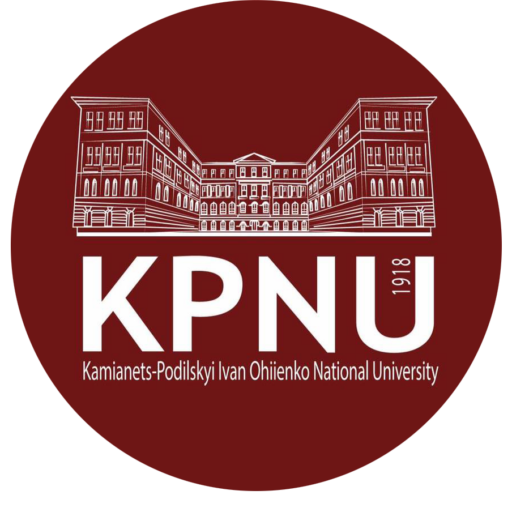Kateryna Svetlychenko
Vinnytsia Mykhailo Kotsiubynskyi State
Pedagogical University
Scientific Supervisor: PhD, A.V. Mosiichuk
THE NOTIONAL AND EVALUATIVE COMPONENTS OF THE MOTIVATION CONCEPT
The article is devoted to the analysis of the notional and evaluative components of the linguocultural concept MOTIVATION based on the dictionaries of modern English and popular psychology discourse. It also discusses different approaches to the structure and interpretation of the concept.
Keywords: linguocultural concept, concept structure, MOTIVATION
The concept is a term to which different sciences give different definitions depending on the usage of this notion. In English dictionaries (Collins COBUILD Advanced Learner’s Dictionary, 2018; Longman Dictionary of Language Teaching and Applied Linguistics, 2010) “concept” is defined as “the idea that underlies a whole class of things,” “common opinion, point of view.” Most often, many layers are recognized in the structure of the concept.
Modern cognitive linguistics and cognitive cultural studies approach the concept as a multilayered linguocultural formation. In this regard, the Russian researcher Yu.S. Stepanov distinguishes three main layers in the concept: the literal meaning (internal form), the passive (historical) layer and the newest (actual and active) layer (Степанов, 1997). According to Z.D. Popova, I.A. Sternin’s, the structure of the concept is represented by the core (base layer) and the periphery (interpretation layer) (Приходько, 2008). In our research, we adopt S.G. Vorkachev and V.I. Karasyk’s approach to the concept, who distinguish the figurative-perceptual, notional and evaluative aspects in its structure (Приходько, 2008). The notional component is the basis of the concept, which reflects its denotative correlation with the referent. The figurative-perceptual component is a psychophysiological basis of the concept, which includes visual, auditory, taste and smell characteristics of objects, phenomena, events reflected in people’s memory. The evaluative component represents knowledge, images and associations that are imposed on the concept through the symbolic code of language (Приходько, 2008). So we consider it appropriate to begin the analysis of the concept MOTIVATION with the notional component.
Linguistic forms of realization of the notional component of the concept MOTIVATION are separate lexemes ( motive and its synonyms) and colocations (suspect somebody’s motive, strong motive, hidden motive, etc.) (Longman Dictionary of Language Teaching and Applied Linguistics, 2010). According to the generalized data of the dictionaries (Collins COBUILD Advanced Learner’s Dictionary, 2018; Merriam-Webster’s Collegiate Thesaurus, 2018; Longman Dictionary of Language Teaching and Applied Linguistics,2010) the lexeme motive has the following meanings:
- a reason for doing something;
- causing movement or action;
- the goal or object of a person’s actions;
- some inner drive, impulse, intention.
The general conceptual feature that can be identified based on the definitions of this lexeme is encouraging human activity. From etymological research, it follows that the analyzed lexeme motive is a borrowing from Old French “motif”, which means “moving” or causing someone to take action (Longman Dictionary of Language Teaching and Applied Linguistics, 2010).
After analyzing the data from the above-mentioned dictionaries, we can conclude that the lexeme motive comes from the word “impetus” and is associated with the concept of prompting somebody to do something.
As mentioned above, the notional component of the concept is also expressed by a synonymic set. Thus, the concept MOTIVATION is expressed by not only the corresponding lexeme motivation and its derivatives but such synonyms as catalyst, inclination, encouragement, reason, impetus, desire, which are united by the meaning:
1) words or behavior that give someone confidence to do something;
2) a condition or event that is the cause of an important change;
The manifestation of the evaluative component of the concept is the contextual use of the lexeme, which confirms the relevance of the chosen lexeme in popular psychology discourse. Consider the sentences below, which show different contexts of the concept MOTIVATION realization:
- Motivation is what gets you started. Habit is what keeps you going ( Elrod, 2012). The word motivation has a meaning causing movement or action because motivation is the first step in forming habits.
- Motivation and enthusiasm go hand in hand (Long, 2013). The word motivation has the meaning of a reason for doing something.
- Motivation is a habit (Long, 2013) The word motivation has the meaning goal of a person’s actions.
- Procrastination negatively affects your motivation level (Long, 2013).
- Focusing on issues that you have no control over leads to irritation, frustration and ultimately low motivation (Long, 2013).
In the last two sentences, the word motivation has a meaning of some inner drive, impulse, intention.
To conclude, there is still no single definition of the concept. This is due to its complex and multidimensional structure, which not only contains the conceptual basis but also includes associations, emotions, evaluations, national images and connotations inherent in a certain culture. Further research of the concept MOTIVATION will attempt to highlight the figurative component.
References
- Приходько, А.М. (2008) Концепти і концептосистеми в когнітивно-дискурсивній парадигмі лінгвістики. Прем’єр.
- Степанов, Ю.С. (1998) Язык и метод: К современной философии языка. Языки русской культуры.
- Collins COBUILD Advanced Learner’s Dictionary: The Source of Authentic English (9th ed.). HarperCollins UK.
- Merriam-Webster & Inc. (2018). Merriam-Webster’s Collegiate Thesaurus. Merriam-Webster, Inc.
- Richards, J. C., & Schmidt, R. W. (2010). Longman Dictionary of Language Teaching and Applied Linguistics (4th ed.).
Sources of illustrative material
- Elrod, H., & Kiyosaki, R. (2012). The miracle morning: The not-so-obvious secret guaranteed to transform your life (Before 8 AM). Hal Elrod.
- Long, K. (2013). Magic motivation – From stuck to success in days. Ebookit.com.
